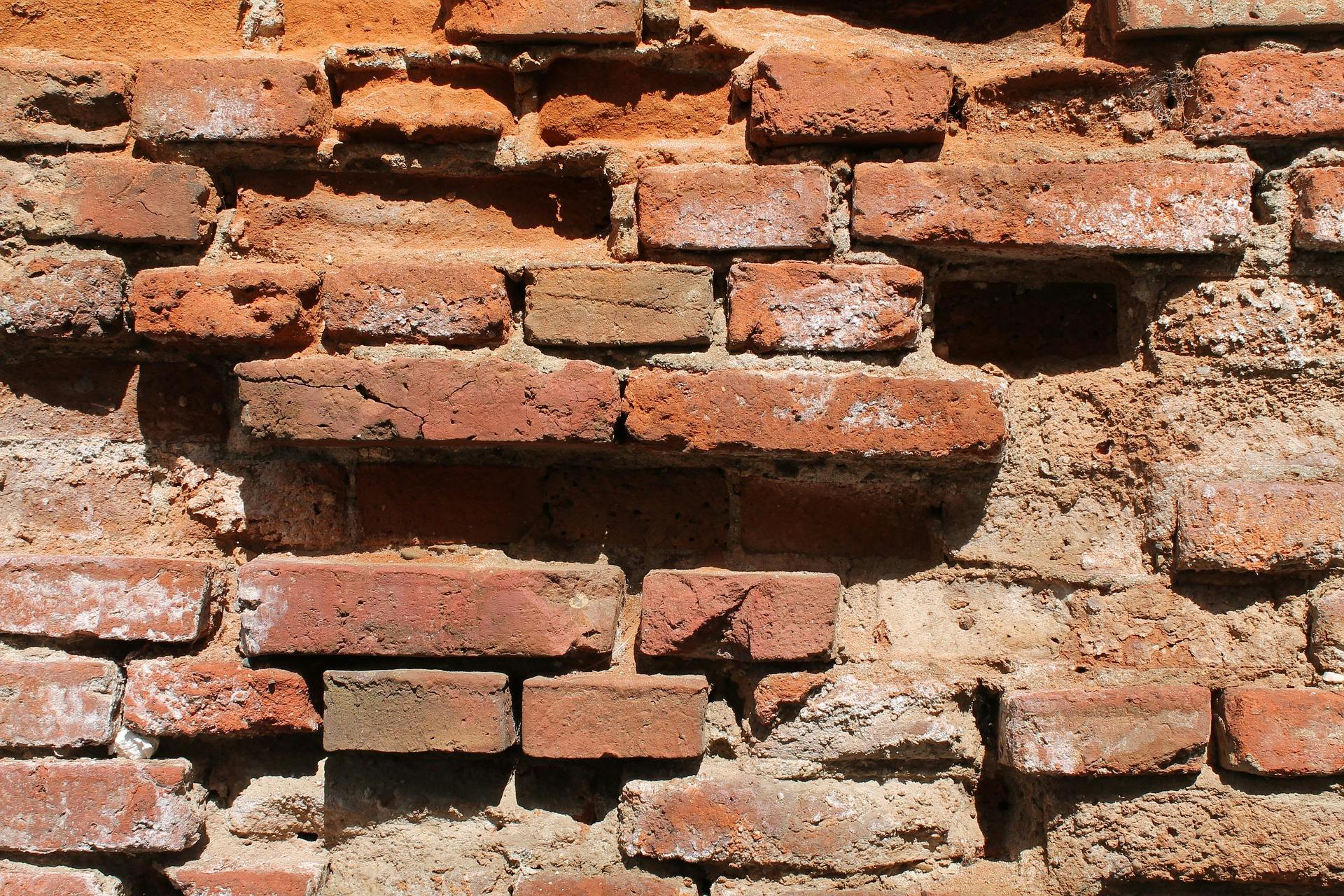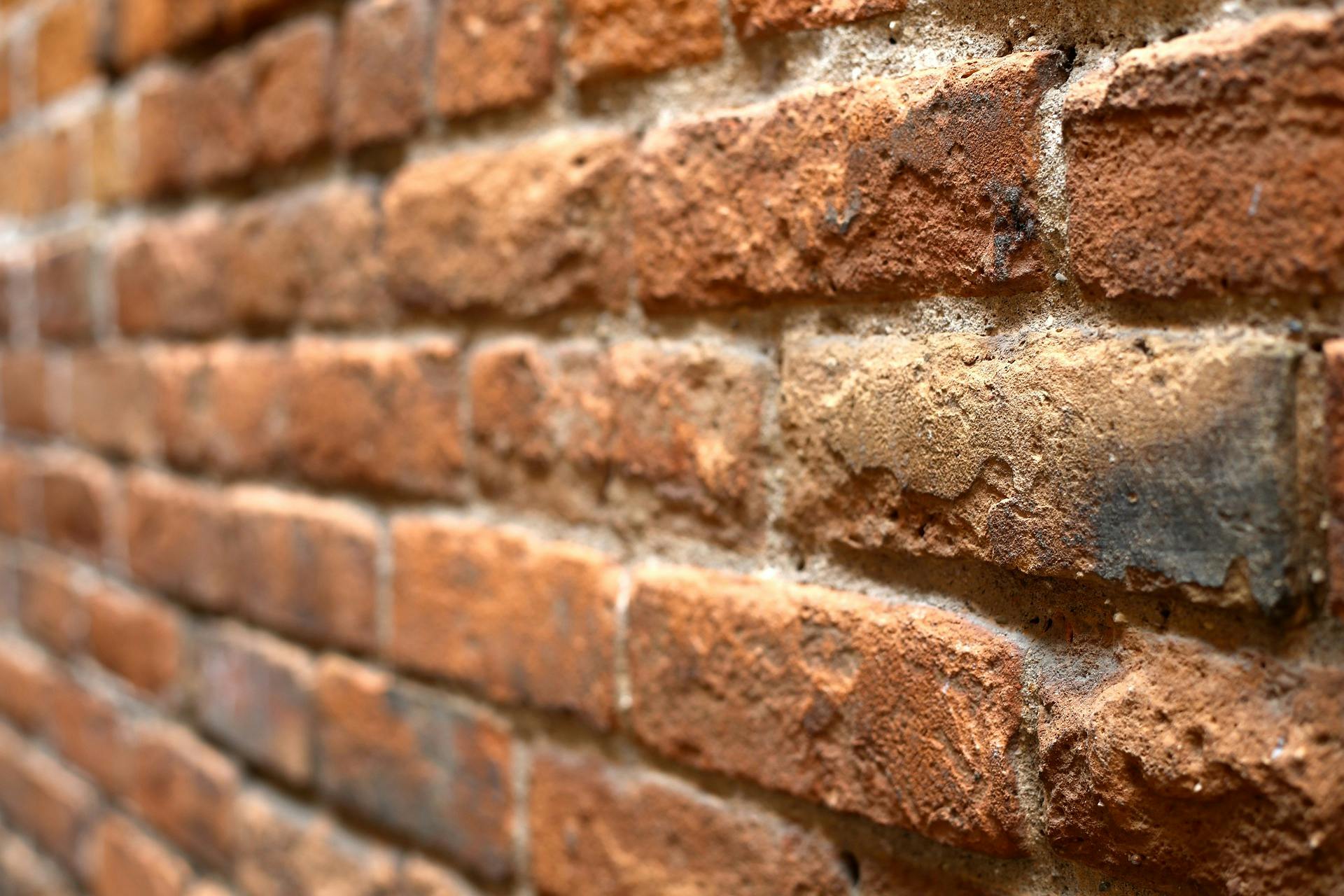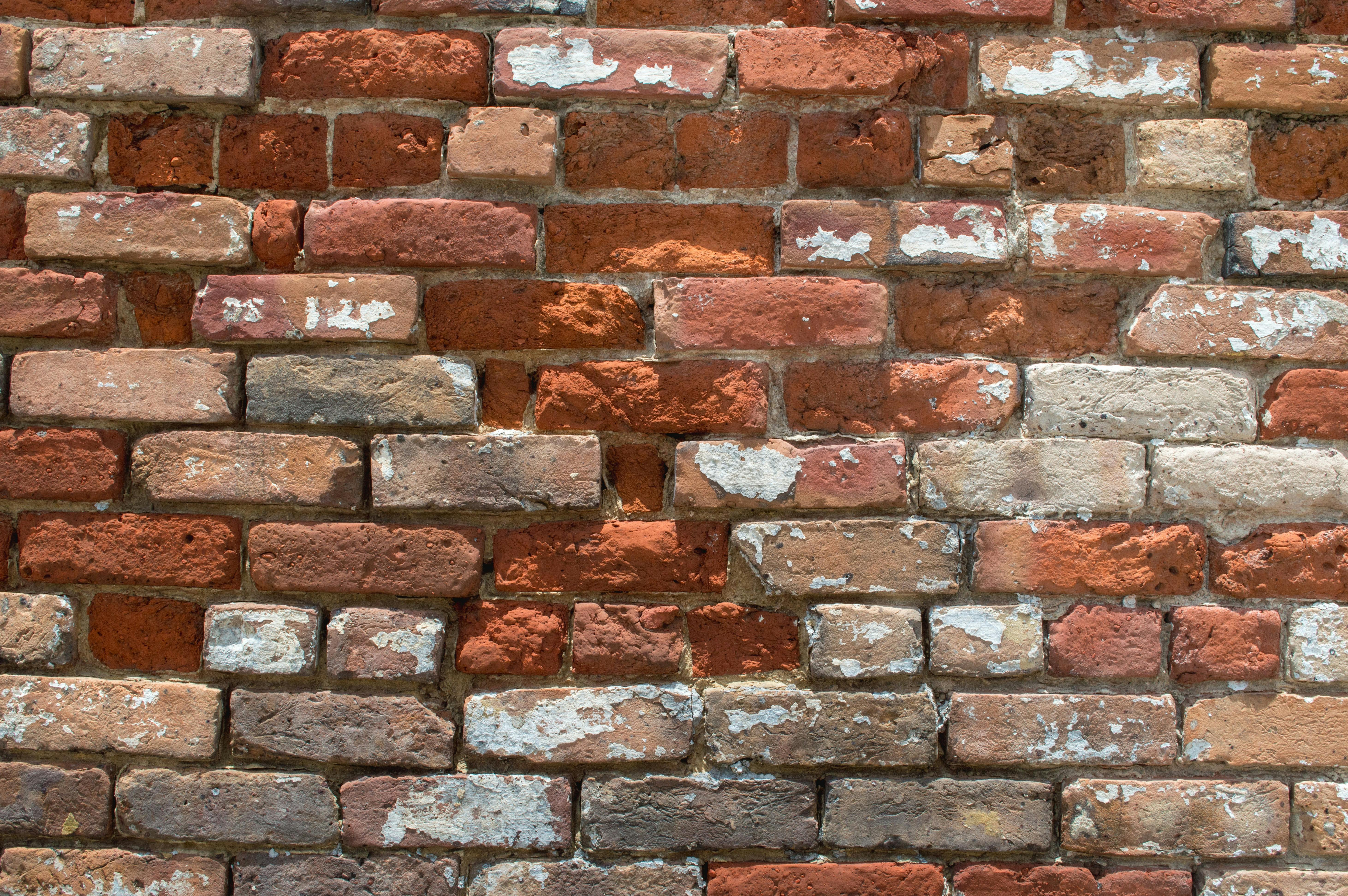Brick does more than give your home a touch of class. This building material is durable, fire and weather-resistant, and can even help insulate your home.
But when the bricks on your home’s exterior start to crumble, you could be experiencing a phenomenon known as “brick spalling.” If your home or building features brick, it’s important to understand what causes brick spalling and what you should do if you suspect it’s happening to your home’s brick.
What Is Brick Spalling?

You’ll first notice brick spalling when the face of a brick begins to crumble or flake away from the body of the brick. Once the face crumbles, the softer interior portions of the brick become exposed to the elements.
While brick spalling is typically noticed at this flaking stage, sometimes, you may not realize there is a problem with your bricks until the brick spalling has progressed to its more advanced stages, especially in areas of your home that are often out of sight.
At these stages, you may see chunks of brick coming off of your walls or chimney. These pieces may lie at the foot of your home’s foundation.
All of these signs point to damaged bricks, which may mean it’s time for an inspection and repair. If you do not address brick spalling quickly, entire bricks can eventually corrode. This can result in major structural flaws in your home or chimney, to say nothing of the impact on your home’s overall curb appeal.
What Causes Brick Spalling?
Brick spalling is usually the result of a cycle of freezing and thawing moisture.
Bricks are naturally porous, which allows them to absorb water quite readily. But during the winter, the water inside your bricks will freeze. And when water freezes, it expands, causing fractures in the brick itself. When the water thaws, it will run out of the brick again, but the brick will now feature permanent cracks and fissures.
When the cycle repeats itself, water will fill in the cracks created by the previous thawing and freezing cycle. Only this time, when the water expands, it will force the cracks open just a bit larger. After a few cycles, the cracks widen enough to compromise the brick’s structural integrity.
Naturally, brick spalling is more commonly seen in colder climates, but any region that experiences below-freezing temperatures can experience brick spalling.
How to Fix Brick Spalling

Technically, there’s no way to “fix” brick spalling. Once the brick begins to crack, the only solution is replacement.
Brick Replacement by a Professional Mason
If you notice any signs of brick spalling on your home or building’s bricks, it’s time to contact the pros. Masonry can be hard work, and you don’t want to risk damaging surrounding bricks or causing structural damage to your home.
For example, if you don’t seal the area properly, it could compromise the insulating properties of your exterior surfaces.
When you hire a professional mason to take care of your bricks, after performing an inspection to identify the damaged bricks, they will typically:
- Grind out the mortar with a specialized drill
- Remove damaged brick with a diamond saw or cast-iron masonry blade
- Clean out any remaining debris
- Insert new brick
- Mix mortar and mud, then seal the brick in place
- Tap the brick to ensure proper placement
- Let the new brick and mortar dry and harden
- Clean the area once complete
A trained mason can accurately assess any damage to your brick and provide these remediation services that replace the damaged bricks. But the right masonry service can also provide guidance on how to prevent brick spalling from happening again in the future.
How to Prevent Brick Spalling

Unfortunately, brick spalling can’t be reversed. Your best bet is to prevent brick spalling from occurring in the first place. How can you protect your bricks from spalling damage? Here are six suggestions for safeguarding your home:
1. Ensure Water Drains Away from Your Foundation
Even a simple runoff spout can prevent rainwater from coming straight off your roof. It also helps to ensure that the ground around your home slopes away from your foundation. In extreme cases, you might consider a retaining wall that protects your home during rainfall.
2. Avoid Pressure-Washing Your Brick Surfaces
Don’t add excess moisture to your exterior walls or chimney. Pressure-washing can actually weaken your exterior, causing more water to absorb into the porous surfaces of your bricks.
3. Install a Chimney Rain Cap
A “rain cap” is a metal covering that goes over the top of your chimney. While a rain cap doesn’t completely protect your chimney from moisture, it can mitigate the amount of moisture that you receive from rain and snow.
4. Clear Away Exterior Plants
Crawling vines and other plants tend to attract and trap moisture, which in turn is absorbed by your bricks. Exterior plants can therefore accelerate the brick spalling process by introducing excess moisture into the exterior surfaces of your home.
5. Keep an Eye on Your Bricks
Generally, brick spalling will be noticeable to the naked eye, especially once the brick’s surface begins to crumble away. Take a good look at the brick surfaces of your home. Make a note of any problem areas where the face of the brick is starting to crumble. If you see any areas that need repair, it may be time to call the experts.
6. Schedule Routine Inspections
Getting a regular checkup can prevent costly repairs down the line. A masonry company can inspect your bricks and identify any damaged areas. By scheduling an inspection into your routine maintenance, you can prevent small problems from becoming bigger — and costlier — issues.
Brick Spalling Remediation Services
Brick is an exceptional building material, both for its aesthetics and its durability. But like any material, it can be subject to damage and requires routine inspection and maintenance to keep it at its best.
If you live in the Delaware Valley, it is essential to have your home or building’s brick professionally inspected. McNamara Masonry can assess your walls and chimney and identify any instances of brick spalling. Our expert masons can also offer restoration services that keep your home in pristine condition.
To schedule an inspection for your brick home or building, contact us today.
